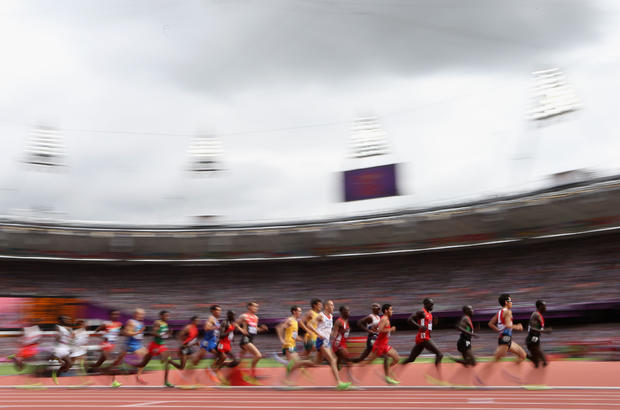Elite athletes double illness risk after traveling five time zones, study finds
(CBS News) Athletes at the London Olympics have a hard enough time competing against the world's best in their respective sports. A new study suggests some athletes who traveled five time zones or more to reach the games may also risk getting sick.
The researchers behind the study, published in the August 8 issue of the British Journal of Sports Medicine, wanted to see the effects travel had on elite athletes. They looked at a study pool of 259 rugby players at the top of their games who were competing at the 2010 Super 14 Rugby Tournament. The tournament took place over 16 weeks from February to May of that year, and consisted of 14 teams from Australia, South Africa and New Zealand.
Throughout the tournament, games were hosted in each of these countries, leading athletes to travel from two to 12 hours away from their home turfs. Eight team doctors were asked to record a daily log of the athletes who needed medical attention because of an illness.
They reported 469 illnesses in 187 of the players - over 70 percent of the study pool. The researchers used a calculation to create illness rates per 1,000 "player days." They found that when players played at their home stadium, the average rate of illness was 15.4 per 1,000 player days. When they traveled to play in countries with a five-plus-hour time difference, their illness risk doubled to 32.6 illnesses per 1,000 player days.
Once back on their home soil, illness rates fell back to 10.6 per 1,000 player days. Infections accounted for more than half of all reported illnesses, with respiratory problems accounting for 31 percent of the illnesses, digestive problems making up 27.5 percent of illnesses, and soft-tissue conditions such as tendinitis or bursitis, accounting for 22.5 percent of illnesses.
The researchers say that flying - which may be taxing on the immune system - likely didn't contribute to the illnesses because players improved once they got back to their home field.
"The results from our study indicate that the illness risk is not directly related to the travel itself, but rather the arrival and location of the team at a distant destination," the authors wrote. They said differences in altitude, air quality, temperature allergens, in addition to different types of food and germs may contribute to the illness risk.
Jason Tetro, a microbiologist at the University of Ottawa in Canada told CBC News that during major sporting events, travelers may carry germs with them or may not be fully vaccinated, contributing to risk. A recent report by MIT showed how easiy it was for germs and contagions to potentially spread through airports and travelers, citing JFK in New York as the top place where a panedemic might start.
The Daily Mail reports that during the London 2012 Games, three athletes from Australia and two athletes from Canada caught a stomach virus after traveling to London.
Dr. Deborah Turbitt, director for the arm of the U.K. Health Protection Agency that's monitoring the Olympic Village for infectious diseases, told the Mail, "We said we thought there would be a bit of tummy upsets and there have been. We knew there would be a few people with coughs and colds and sneezes and there have been."
She added that there were no outbreaks, and illnesses have been reported in very low numbers.
